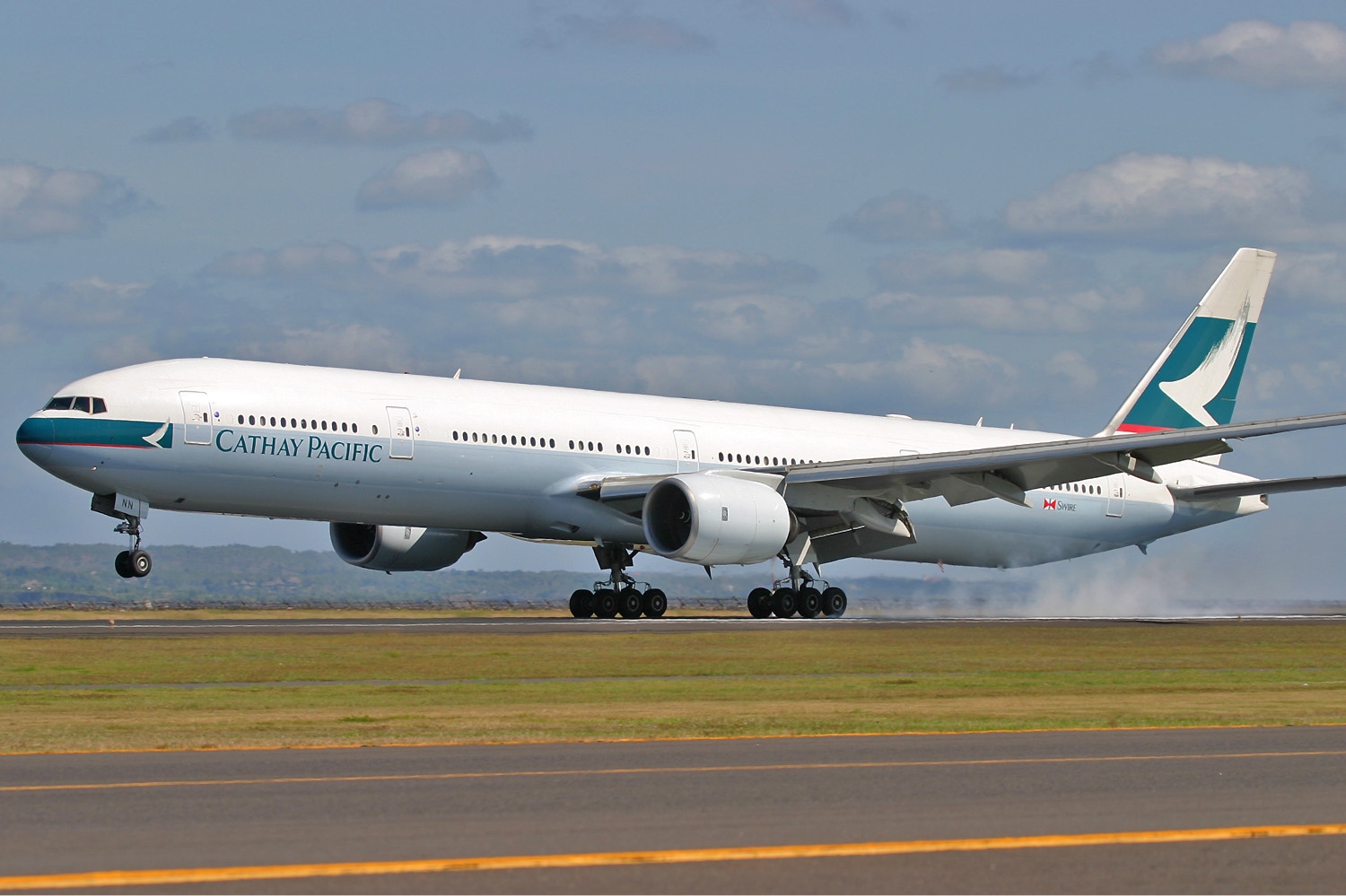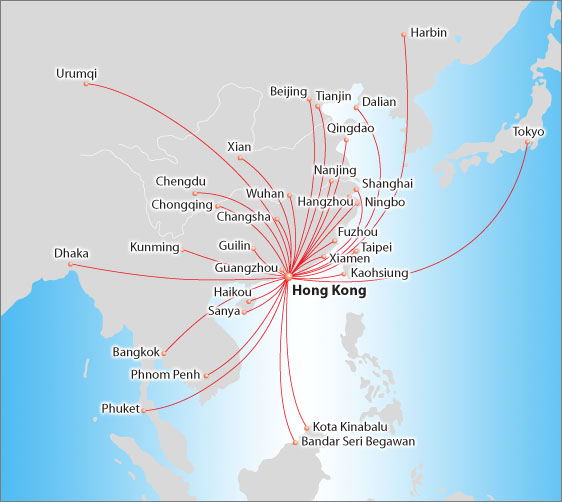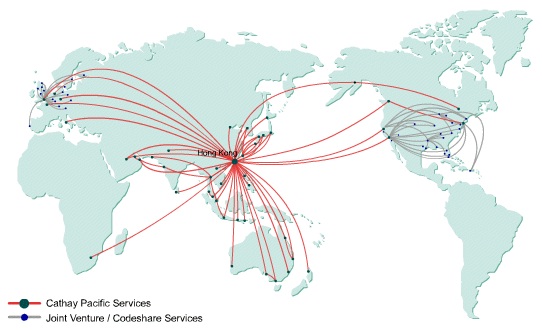The business world is always a dynamic environment, and a business leader can’t always hold the leading position in a competitive market unless the business constantly adapt to the changing environment. Cathay Pacific has made several decisions that has brought about many innovations and expansion for this company, and survived the economic recession that resulted in lower demand for air travel from 2008.
With a lower demand, Cathay Pacific also faced threats from new entrants to the market. Hong Kong Airlines, which has the same base airport as Cathay Pacific does, started to expand their routes which directly compete with Cathay Pacific from 2008, when Cathay Pacific just merged Dragonair, another Hong Kong based airline.
These problems started to bother Cathay Pacific and made them rethink about their Business strategies. While the global airlines market was shrinking during the recession, the demands for air travel from mainland China has been growing since then. Cathay Pacific realized passengers from Mainland China can be extremely profitable when the local demand from Hong Kong stagnated. After knowing this segment, Cathay Pacific schedule more frequent flights to China, and took advantages of their newly-merged subsidiary, Dragonair, which already has many flights within Asia, especially 400 flights per week from Mainland-Hong Kong, in order to attract transit passengers from Mainland China. In order to offset their weakness as a “stranger” to mainland’s airline industry, Cathay Pacific decided to hold 19.7% shares of Air China, the national flag airline of China; and Air China also cross hold about 30% shares of Cathay Pacific. These make it much easier for Cathay Pacific to build relation with authorities in China.
Dragonair’s network helps to connect Cathay Pacific with more long haul flights.
They also use more specific segment by cities to implement their strategies. For example, for flights to big cities such as Beijing, where most passengers are business travelers, they have more available business seats, and high frequency that provides flexible time for passengers to choose. In contrast, for secondary cities such as Chengdu, Xiamen, Wuhan, they tend to have less business class seats since the consumers are generally price sensitive. So the different strategies helps Cathay Pacific to operate at the best efficiency.
According to their 2011’s annual report’s segment information, (http://downloads.cathaypacific.com/cx/investor/annualreports/2011_annual-report_en.pdf), about 50% of revenue are from China region. Therefore, the targeted market strategy contributes to a high portion of revenue for the company.
(to be continued for the next blog, which will talk about how their new service creates the “added value” for their products i.e. Innovating with targeting)




I oversee a vape shop website directory and we have had a listing from a vape shop in the USA that additionally offers CBD product lines. A Month afterwards, PayPal has written to use to claim that our account has been restricted and have asked us to get rid of PayPal as a payment method from our vape shop submission site. We do not sell CBD product lines like CBD oil. We merely offer online marketing services to CBD firms. I have taken a look at Holland & Barrett– the UK’s Reputable Health and wellness Retail store and if you take a good look, you will witness that they supply a pretty substantial stable of CBD products, primarily CBD oil and they also happen to accept PayPal as a settlement solution. It seems that PayPal is applying contradictory standards to many different companies. Because of this stipulation, I can no longer take PayPal on my CBD-related website. This has restricted my payment possibilities and now, I am greatly dependent on Cryptocurrency payments and straightforward bank transfers. I have gotten in touch with a lawyer from a Magic Circle law firm in The city of london and they stated that what PayPal is undertaking is entirely against the law and discriminatory as it ought to be applying a systematic standard to all companies. I am still to consult a different attorney from a US law office in London to see what PayPal’s legal position is in the United States. For the time being, I would be highly appreciative if anybody here at targetdomain could provide me with substitute payment processors/merchants that deal with CBD companies.